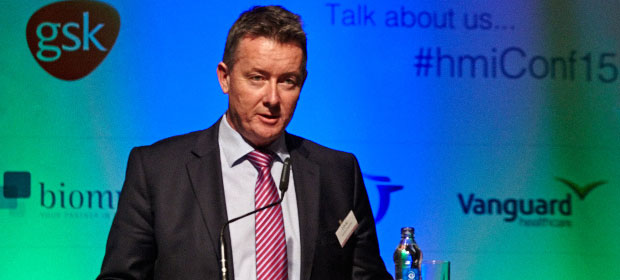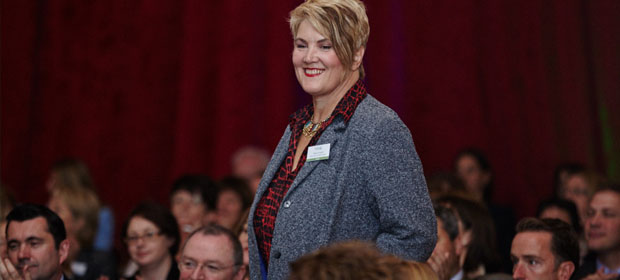The HMI Leaders Award had now celebrated two years of outstanding achievement by health managers, HMI Council Member and Chief Executive of the Hermitage Medical Clinic, Mr. Eamonn Fitzgerald told the Conference.

Mr. Fitzgerald, who chaired the adjudication panel for the last two years said that, launched in 2014, the HMI Leaders Award recognised leaders who were bringing about changes in healthcare, delivering improvements in patient outcomes, enhancing service, delivery and improving resource allocation. It showcased the commitment, risk and perseverance which teams and individuals displayed in leading change.
He said the awards were very heavily subscribed and adjudicated at regional and national level.
“This year we had over 60 entries from all over country and seven finalists were chosen. The areas covered by the finalists were exceptionally interesting and relevant.
They were:
- Brian Cleary and Sharon Cooley, Rotunda Hospital – “Thrombocalc – towards Novel Strategies in the Prevention of Thrombosis.”
- Alison Dougall, Dublin Dental Hospital – “Promoting improved access to dental care for people living with haemophilia in Ireland and encouraging a culture of oral health promotion within the teams that treat them.”
- Jennifer Wilson O’Raghallaigh & Mary Forry, Beaumont Hospital – “Better Health, Better Living – developing the Chronic Disease Self-Management Programme at Beaumont Hospital and through Patient Organisation Partnerships.”
- Niamh Smyth, Tallaght Hospital – “Introduction of an Electronic Ordering System for Enteral Tube Feeding Products in a Teaching Hospital.”
- Paul Balfe, St. Luke’s General Hospital, Kilkenny – “Establishment of the first 24 hour direct Acute Surgical Assessment Unit in Ireland with separation of emergency and elective General Surgical Practice.”
- Maura Loftus & Elaine Prendergast, Roscommon Hospital, SAOLTA University Health Care Group – “Regeneration Post Reconfiguration.”
- Patricia O’Gorman, South Infirmary Victoria University Hospital, Cork – “Setting up an Acupuncture Service to Treat Radiation-Induced Xerostomia (Dry Mouth) in patients with Head and Neck Cancer.”
“While the winner was outstanding, each of the projects was outstanding in its own right from what they brought to patients and the community. We were particularly impressed by the amount of effort and commitment it took from people who were already very busy in the health sector to take on additional leadership roles. This cannot be over estimated and they provide a beacon of hope to lead us to provide enhanced outcomes to current and future patients.
“Some of these people have moved on to roles where they will have more influence in the health services and I am delighted that some of our finalists have come along to attend today’s conference.


